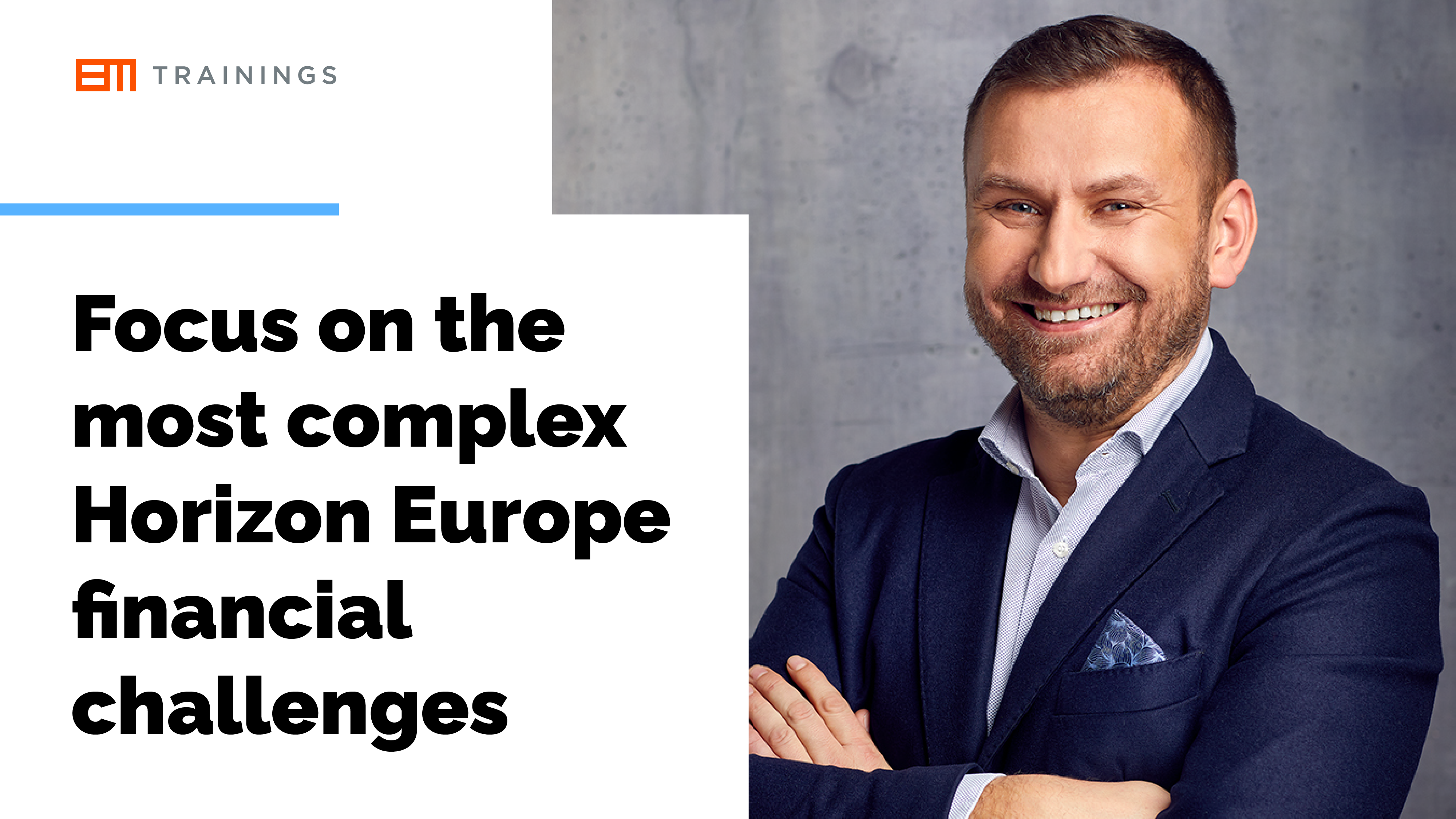Author: Gabor Kitley
We recently caught up with Gabor before his course in Lisbon, 21-23 February, and learned about his extensive experience, entertaining anecdotes from previous courses, his favourite parts of teaching, and questions he often receives on Horizon Europe costs, audits, and finances. We got a glimpse into his teaching style, but what really stood out was his unexpected comparisons!
Gabor, what makes your courses and consultancy sessions unique?
When it comes to finance, my philosophy is that everyone should be able to learn the financial rules of the Horizon programmes and handle cost reporting. Sure, reading the Grant Agreement or talking about accounting may not be difficult, but that's just the tip of the iceberg. The real key is "learning by doing." You can only truly master the details if you're practicing what you preach.
It's important to note that finance is always evolving - not necessarily the written rules, but how they're interpreted by project officers, financial officers, or EC auditors. To stay on top of these changes, you need to be involved in finance on a daily basis, working on projects, reporting, and preparing for audits. Following Commission documents without prior project experience can lead to misinterpretation of rules, and that's where I come in with my questions during consultations.
What I love about my courses is incorporating examples. I share real-life examples of how different partners' finances fit together - or don't fit together.
Another benefit of face-to-face courses is having participants from diverse organisations - public or private. Different institutions have different protocols, and hearing different scenarios leads to inspiration and new solutions, sometimes even new partnerships!
What are some of the most common questions you receive during your courses?
Financial issues are often only addressed when they arise, and when they do, course participants don't always know how to handle them. The problem is that reading through the documents doesn't provide you with practical insight, and even the "textbook" doesn't cover exceptions - which are all too common. Participants come to the course with a particular mindset, often focusing on personnel costs. Convincing them that it's actually one of the easier cost categories to calculate is where hands-on exercises come in handy.
What's the main message you want to leave with your course participants?
My goal is for everyone to leave satisfied and with a sense of direction. The topics we cover are never a one-person job, and when the participants return to the office, they should involve their team with what they've learned. And last but not least, my message is simple: try! You won't succeed if you don't try, and failure is just a learning opportunity.
Finally, how do you see yourself as a trainer?
I see myself as a facilitator. My job is to create opportunities for everyone, both within my company and through my consultancy and training services. I bring fresh ideas and spark interest in new areas of development with a practical, disruptive mindset. I'm the bridge between accountants, who think their job is done once they've entered numbers into tables and sheets, and researchers and research managers, who often don't understand the numbers they see. I can effectively communicate with both sides and bring them together.
Think of it like driving - you need practice and experience to become a good driver, and the same goes for project finance. And, the best teacher would be the one with, let's say, 20+ years of experience.

